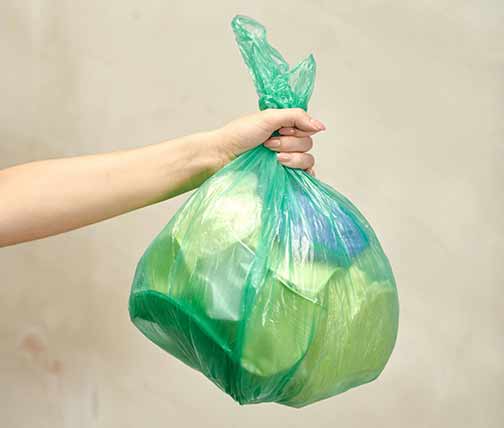
It is important to extend the life of your garbage disposal to keep your kitchen clean and efficient. Without proper care, it can break down, leading to costly repairs. Simple habits can help extend its lifespan, saving you time and money. Understanding how it works and what damages it will keep it in top condition. Many homeowners overlook small signs of wear until it’s too late. With this in mind, regular maintenance is crucial to prevent clogs, motor failure, and leaks.
Use Cold Water for Every Operation
Always run cold water if you want to extend the life of your garbage disposal. Hot water can soften grease, allowing it to coat the pipes and blades. As the grease cools, it hardens and causes blockages. In contrast, cold water keeps grease solid, making it easier for the disposal to grind and flush away. Run the water before, during, and after use to ensure waste moves through the system properly. Another key point is to let the water run for at least 10–15 seconds after shutting off the disposal. This helps remove any remaining debris, preventing buildup and odors.
Avoid Grinding Harmful Items
Certain items can damage the blades and clog the system. Hard objects like bones, shells, and fruit pits can dull or break the blades. Fibrous foods, such as celery, corn husks, and onion skins, can wrap around the motor, causing jams. Starchy foods like pasta and potato peels turn into a sticky paste, leading to clogs. As a matter of fact, even coffee grounds and eggshells should be avoided. While small particles seem harmless, they accumulate and create blockages in the pipes. With this in mind, always dispose of these items in the trash or compost instead.

Garbage needs to be removed as soon as possible.
Check for Leaks and Loose Connections
Leaks around garbage disposal indicate worn-out seals or loose fittings. Check under the sink for moisture or dripping water. In contrast, ignoring small leaks can lead to water damage and mold growth. Tighten loose bolts and inspect the mounting assembly for signs of wear. If the leak persists, you may need to replace a seal or call a plumber to check for leaks. With this in mind, regular inspections help catch problems early, preventing costly repairs.
Cut Waste into Smaller Pieces
Large food scraps strain the garbage disposal motor and blades. Breaking down waste into smaller pieces allows for smoother operation and reduces the risk of jams. Drop food into the disposal gradually rather than all at once. Overloading it forces the motor to work harder, leading to overheating and early failure. Besides, smaller pieces are easier to flush down the drain, preventing buildup. If you’re dealing with tough scraps, grind them in small amounts with plenty of cold water. This simple habit keeps your unit running efficiently.
Other Beneficial Kitchen Upgrades
Having faulty garbage disposal might motivate you to invest in your kitchen. Buying a new kitchen is an exciting upgrade, but relocating it can be a complicated process. Kitchen units, cabinets, and appliances are heavy, bulky, and often fragile, requiring careful handling. Besides, plumbing and electrical connections add another layer of complexity, making installation more than just a simple move.
Transporting countertops, sinks, and delicate materials without damage is also a challenge. However, moving a kitchen is a complicated business. If you find this task too difficult, hansenbros.com is a good option for help considering their experience and reputation. Throughout the years, they have moved countless kitchens, so you can be relaxed knowing they will handle everything. If not properly planned, moving a kitchen can lead to costly mistakes, delays, and unnecessary stress. Working with experienced movers ensures that each component arrives safely and is ready for installation in your new home.
Clean Your Garbage Disposal Regularly
Regular cleaning prevents odor and buildup inside garbage disposal. Food particles left behind create bad smells and attract bacteria. As an illustration, you can use ice cubes and coarse salt to scrub the blades. This removes stuck-on debris and sharpens the edges for better grinding. Citrus peels help eliminate foul odors while freshening up the unit. Similarly, a baking soda and vinegar mixture can break down grease and grime. Pour the solution in, let it fizz, then rinse with hot water. Avoid using harsh chemicals, as they can damage internal components.

Keep your kitchen clean all the time.
Use Ice and Rock Salt to Maintain Blades
Grinding ice cubes and rock salt cleans the disposal and sharpens the blades. Ice removes stuck food particles, preventing buildup. Salt scrubs the grinding chamber, reducing residue. This method keeps the disposal working efficiently without harming its components. Another key point is to repeat this cleaning method once a week for the best results. Unlike chemical cleaners, this natural approach is safe for the unit and your residential plumbing. Regularly maintaining the blades ensures they stay sharp, preventing inefficient grinding and clogs.
Eliminate Odors with Natural Deodorizers
Over time, garbage disposal can develop unpleasant smells. Food residue trapped inside creates a breeding ground for bacteria. In short, a simple solution is to use natural deodorizers like citrus peels or vinegar. Grinding lemon or orange peels releases fresh oils that neutralize odors. Vinegar disinfects and removes grease buildup, keeping the unit clean. Another key point is to avoid using store-bought deodorizers with harsh chemicals. They may temporarily mask smells but can also harm the disposal’s rubber components.
Never Use Harsh Chemicals
Drain cleaners contain corrosive chemicals that can damage garbage disposal. These products break down grease and clogs, but they also eat away at the disposal’s internal parts. Similarly, bleach can weaken the rubber seals, leading to leaks. If you need to clear a clog, use a plunger or a mixture of baking soda and vinegar. As a matter of fact, natural methods are safer and more effective in the long run. If clogs persist, check for blockages or call a professional for assistance.
Run the Disposal Regularly
Using your garbage disposal frequently keeps it in good working condition. If left unused for long periods, the moving parts can rust or seize up. Running the disposal with water every few days prevents this from happening. Besides, regular use prevents food particles from drying out and hardening inside the chamber. Even if you don’t have food waste to grind, running the unit with cold water helps maintain its functionality. This simple step can prevent long-term damage and keep the motor in optimal condition.

Use our tips to extend the life of your garbage disposal, prevent breakdowns and malfunctions.
Reset the Disposal When Necessary
If garbage disposal stops working, it may have overheated or tripped the reset button. Most units have a reset button located at the bottom. Pressing it can restore power and get the disposal running again. Nevertheless, if the unit remains unresponsive, check the circuit breaker and make sure the power supply is intact. Another key point is to avoid overloading the disposal, as frequent resets indicate excessive strain. If the problem continues, the motor may be failing and require replacement.
Schedule Professional Maintenance When Needed
Some garbage disposal problems require expert assistance. If you notice persistent clogs, grinding noises, or reduced efficiency, contact a plumber. As an illustration, electrical issues, motor failures, or damaged blades need professional repair. Attempting to fix complex problems yourself can lead to further damage. Similarly, an aging disposal may need replacement if repairs become too frequent. Professional maintenance ensures your unit operates safely and efficiently.
Summary: Extend the Life of Your Garbage Disposal
You can extend the life of your garbage disposal with our simple tips. Simple habits such as using cold water, avoiding harmful items, and regular cleaning make a big difference. Besides, checking for leaks and running the unit frequently helps maintain efficiency. As a matter of fact, neglecting small maintenance steps can lead to costly repairs or premature failure. With this in mind, following these best practices will keep your disposal working smoothly for years.

